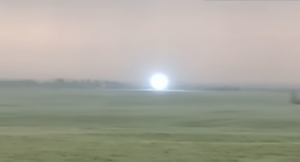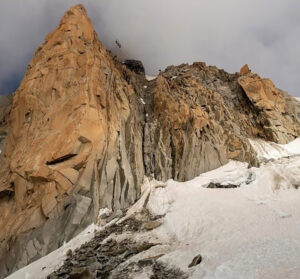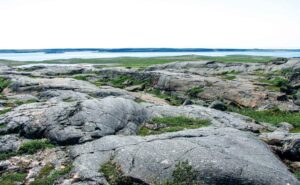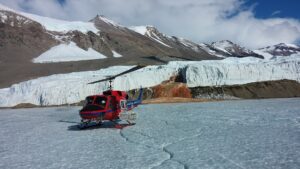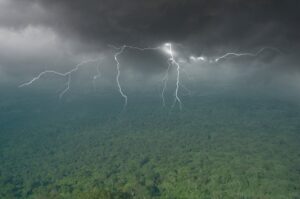The longest-lasting snow patch in the UK has completely melted for just the 10th time in 300 years. It has been around longer than three centuries, which is when records of the Sphinx patch began.
The Sphinx is located in a sheltered part of the third-highest mountain in Britain, Braeriach Munro in the Cairngorms, Scotland. The patch of snow has now disappeared five times within the last six years.

Snow hunter Iain Cameron at the snow patch on September 2. Photo: Iain Cameron
A famous perennial patch
Until 100 years ago, everyone thought the snow patch was a permanent feature on the mountain. It exists in a coire, a glacial hollow that formed during the last ice age. Even in the warm summer months, it used to stay cool enough to maintain snow.
The first confirmed record of it fully melting was in 1933, then again in 1959. Before this, it is thought to have melted in the 1700s for the first time. It was known as a perennial patch because it lasted for more than two years at a time.
Since 1996, its disappearance has become much more common. Over the last three years, it has fully melted each summer, meaning that it is now classed as a seasonal snow patch.
It is with a heavy heart I report that as of today the Sphinx has gone *again*. What 100 years ago was considered to be a permanent feature of our hills has vanished for the 10th time. Five of these have been since 2017.
A sad day.
📷 Joe Glennie pic.twitter.com/IdM97aog8J
— Iain Cameron (@theiaincameron) September 6, 2023
Iain Cameron, a snow expert who monitors the patch, confirmed its 10th disappearance. He said that it is “beyond reasonable doubt” that global warming is the cause of its more frequent melting.
After it disappeared in 2021, he told The Guardian, “What we are seeing from research are smaller and fewer patches of snow. Less snow is falling now in winter than in the 1980s and even the 1990s.”
For those in the UK, it might not be surprising that the snow patch has melted this week. In the last seven days, we have had the hottest day on record this year and set the record for the hottest September ever.
Cameron believes that it will now become a rarity for the Sphinx patch to survive through the year. In 2020, a report by the Cairngorms National Park stated that snow cover has been decreasing on the mountain since 1983. By 2080, there will likely be no snow on the mountain at all.

